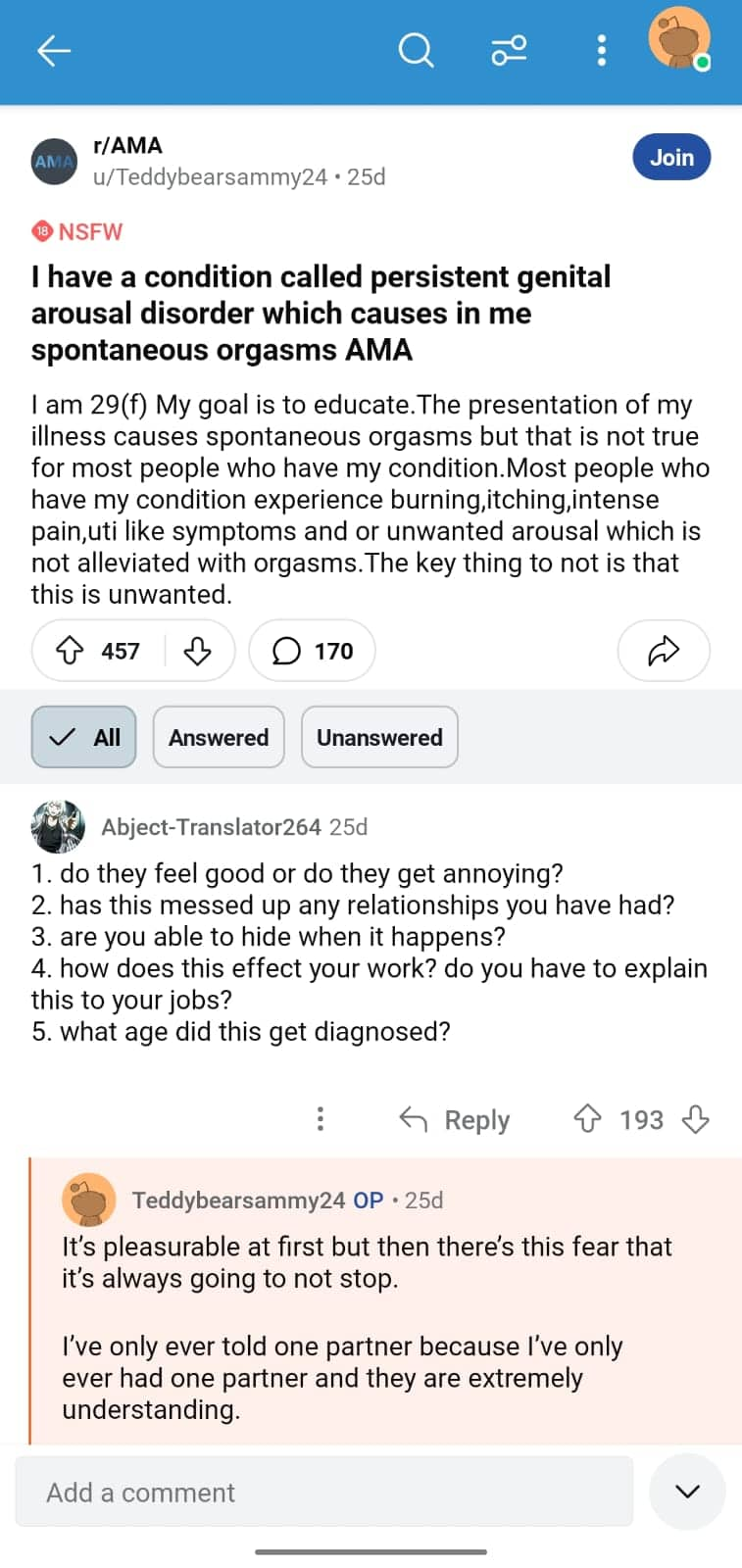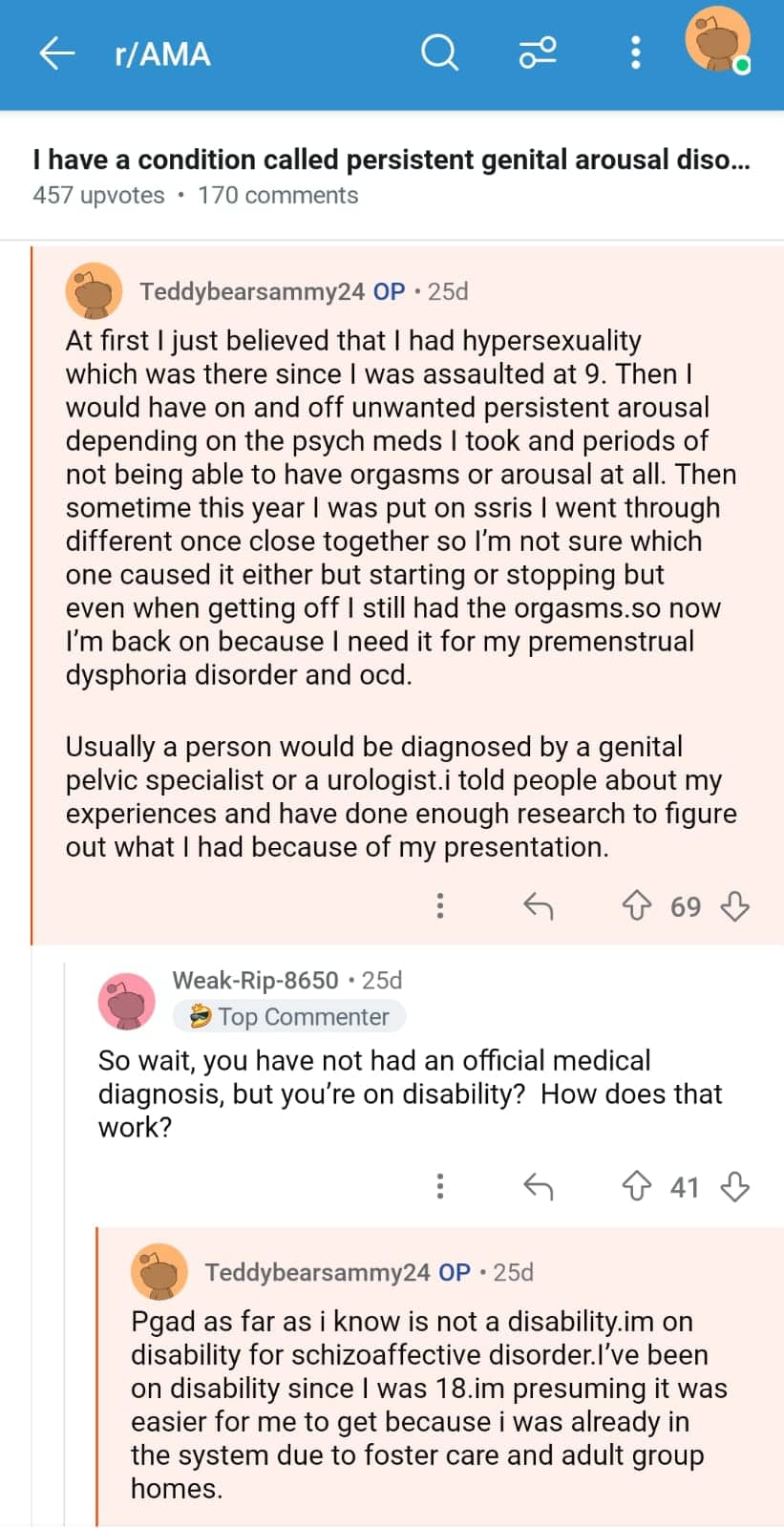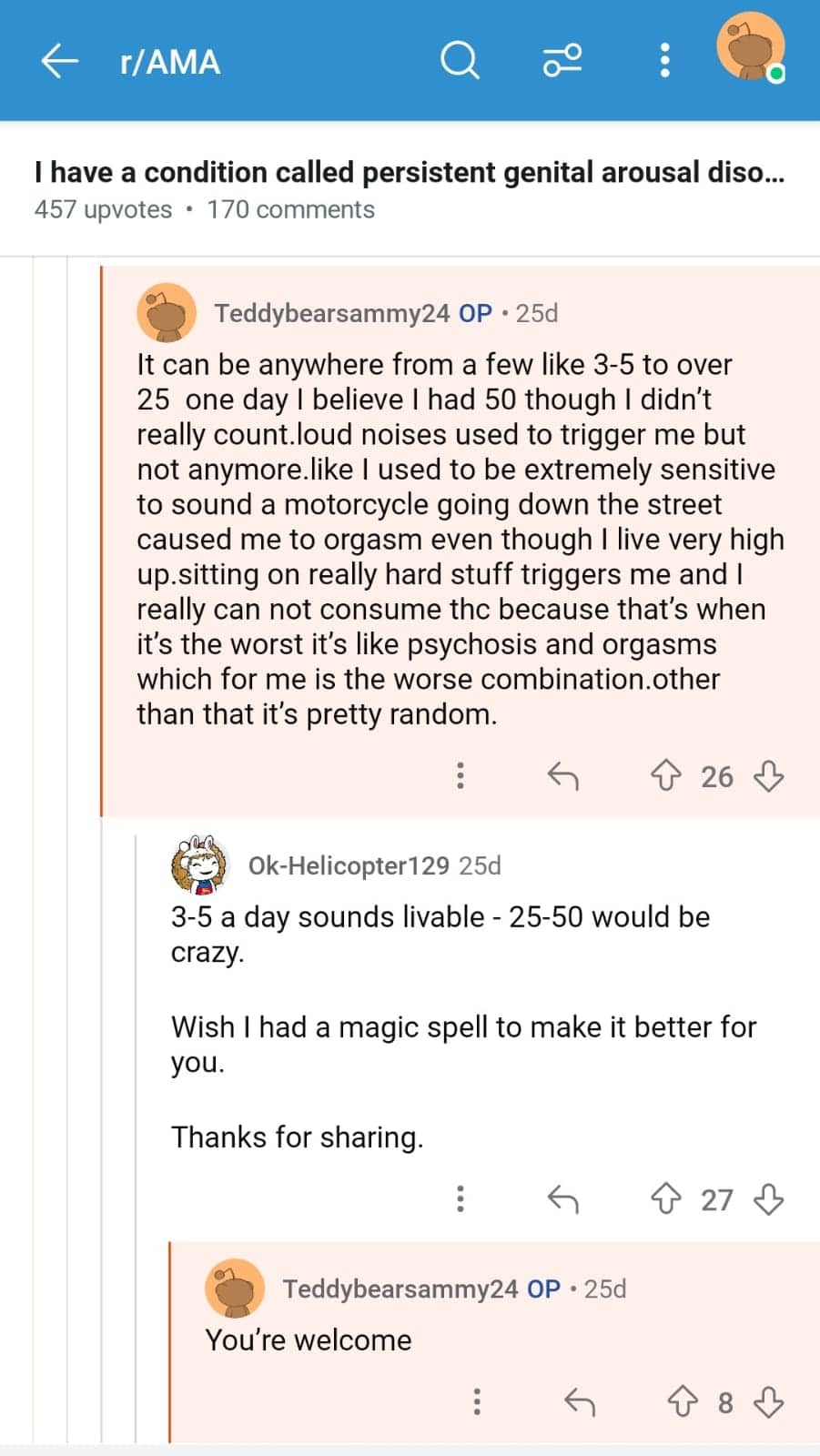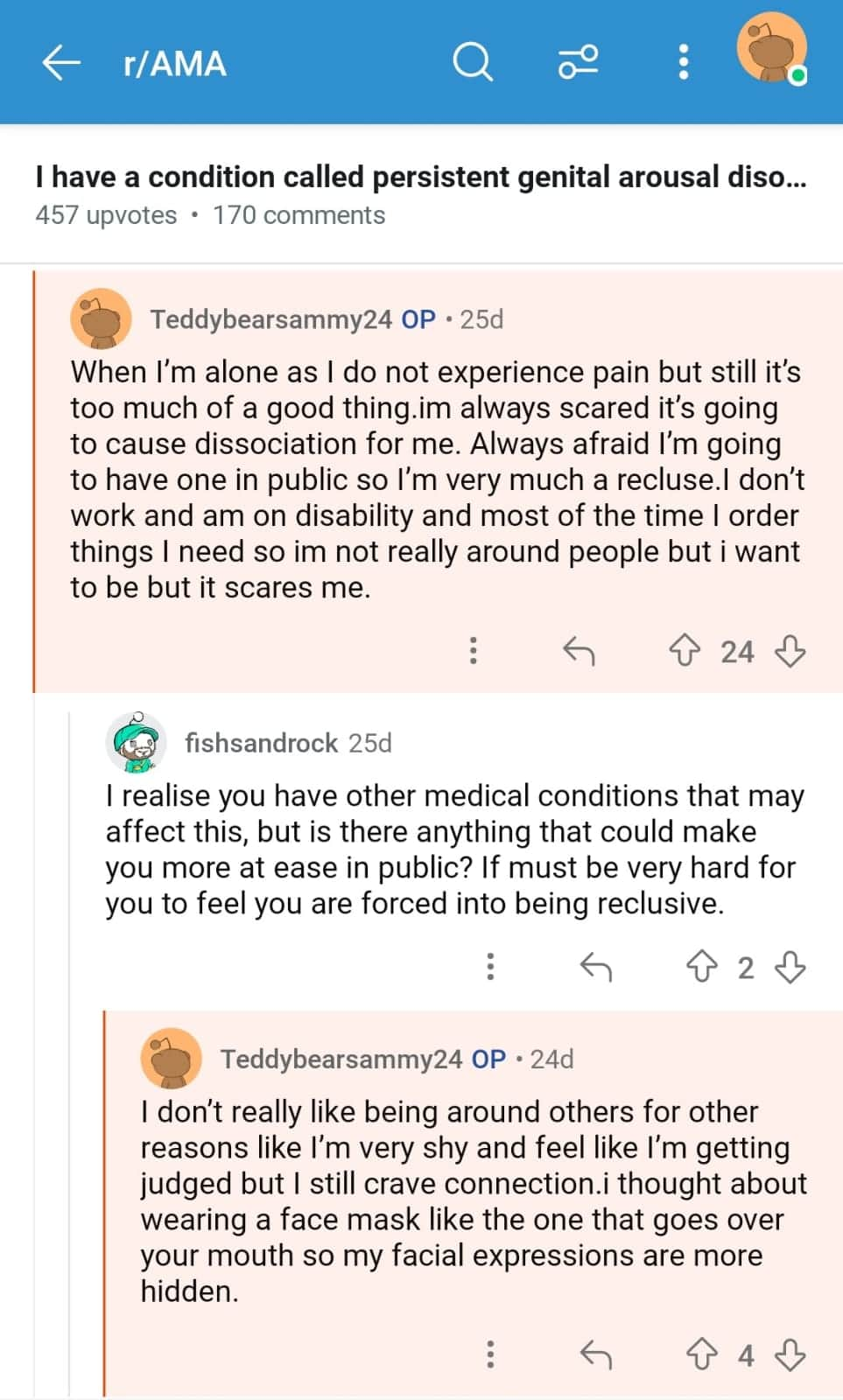In a tell-all Reddit post, a 29-year-old woman has opened up about the significant challenges of living with persistent genital arousal disorder (PGAD), a rare condition that leads to involuntary and frequent episodes of arousal and orgasm without any sexual stimulation.
(Image for representation purpose only; Credit: Getty Images)

In a tell-all Reddit post, a 29-year-old woman has opened up about the significant challenges of living with persistent genital arousal disorder (PGAD), a rare condition that leads to involuntary and frequent episodes of arousal and orgasm without any sexual stimulation. In an anonymous Reddit Ask Me Anything (AMA), she expressed that she believes her PGAD symptoms started as a response to trauma from childhood sexual assault.

The woman’s condition, which leaves her experiencing unpredictable orgasms throughout the day, has become so debilitating that she rarely leaves her home. She cannot work, missed her mother’s funeral, and relies on telehealth for medical appointments.
In her AMA, she clarified that PGAD is purely physiological and unrelated to sexual thoughts or actions. "It’s not something you want to have... it can be very distressing," she wrote.
On a 'good day' she manages around three to five orgasms; on 'bad days', this number can climb to as high as 25, with her worst day reaching up to 50 orgasms. These episodes often occur in the early morning or at night, leaving her exhausted and unable to sleep soundly.


Living with PGAD has left her with few social connections. The woman says her long-distance boyfriend is her “only friend,” as she fears being judged or misunderstood if she interacts with others. Strangers have even questioned if she is safe around children, suggesting that PGAD may stem from inappropriate impulses.
“Someone here asked me if I can be around children, and that’s probably the worst thing I’m afraid someone would ask me,” she wrote.
The woman’s condition is also influenced by unexpected triggers like loud sounds. She shared that at one point, the noise of a motorcycle passing her apartment would lead to an orgasm. Simple activities, such as sitting up quickly, also make her more prone to episodes.

While the exact cause of PGAD is still unclear, studies suggest several potential origins, such as trauma, nerve issues, or even certain medications. The woman suspects that her condition might be linked to childhood abuse, but she has also gone through hormonal changes due to starting and stopping antidepressants for schizoaffective disorder, which could affect serotonin and dopamine levels that play a role in arousal.
Despite the lack of effective treatments for PGAD, she holds hope for recovery through support groups, pelvic floor therapy, and counseling for anxiety and depression. She says that hearing about others’ improvement gives her a sense of possibility. “Some stories of recovery give me hope that I won't always have to hide,” she wrote.
What is Persistent Genital Arousal Disorder (PGAD)?
For the lesser known, PGAD is a rare and often distressing condition that causes spontaneous, unprovoked sensations of genital arousal. In PGAD, the sensations experienced are unwanted and do not relate to sexual desire or stimulation, unlike typical arousal. These symptoms can persist for hours or even days, greatly affecting daily life and mental health.
PGAD is believed to impact around 1% of women, although precise statistics are difficult to determine since many may avoid seeking assistance due to the sensitive and often embarrassing nature of the condition. Recent studies also indicate that men can experience PGAD, although such cases are less common.
What are the causes and symptoms of PGAD?
Researchers are still uncertain about the exact causes of PGAD, but it is believed that a combination of factors contributes to its development. Potential causes may involve issues related to blood vessels and blood flow, nerve function, or behavioural health concerns. As per Cleveland Clinic, stress, anxiety and depression have also been linked to PGAD.
According to Cleveland Clinic, PGAD is characterized by intense feelings of genital arousal linked to increased blood flow and heightened tension in a woman's vagina. Pain or discomfort in the genital area, tingling sensations, vaginal contractions, increased vaginal lubrication, and unpredictable orgasms are some of the symptoms listed.
What is the treatment for PGAD?
Cleveland Clinic further notes that while there aren't any standard treatments for PGAD, studies have demonstrated that the following have helped those suffering from this rare condition
* Antidepressants, antipsychotics, mood stabilizers, and drugs for nerve pain
* Cognitive behavioral therapy, electroconvulsive therapy, psychotherapy, distraction techniques and validation techniques
* Pelvic floor physical therapy and massage
